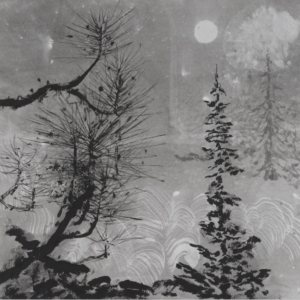David has been writing haiku and other short-form poetry for more than fifteen years.
In October 2024 David attended the Seabeck Haiku Getaway where they announced winner of the 2024 Porad Award haiku competition. As they read the winning poem aloud David thought, “what the—those are my words!” His work was selected from more than 600 submissions representing poets from twelve countries.
In general, haiku is just a few words that typically have two thoughts whose interplay is the magic. In traditional Japanese haiku they are separated by a cutting word or kireji, sometimes expressed in Western haiku by an ellipsis or em dash. Often there is a seasonal reference, though not necessarily. Haiku can be three lines or one line, or even two. In modern haiku there is much flexibility. The syllabic count taught to schoolchildren – the 5-7-5 – is not especially relevant.
David said he was grateful for the recognition, and for all the people who work so hard to make a haiku poetry community. The first-prize winning poem:
on my knees
to see the underside of things. . .
hellebore bloom
Some other recent haiku:
spitting
watermelon seeds at my shadow
summer afternoon
(pub. in “Failed Haiku”)
smooth in my hand the stone’s long journey
(pub. in “First Frost”)
windstorm. . .
crow outraces
a leaf
the emptiness
of the meditation hall
the taste of sour rye
(pub. in “ZigZag Bridge,” Haiku Northwest anthology)

